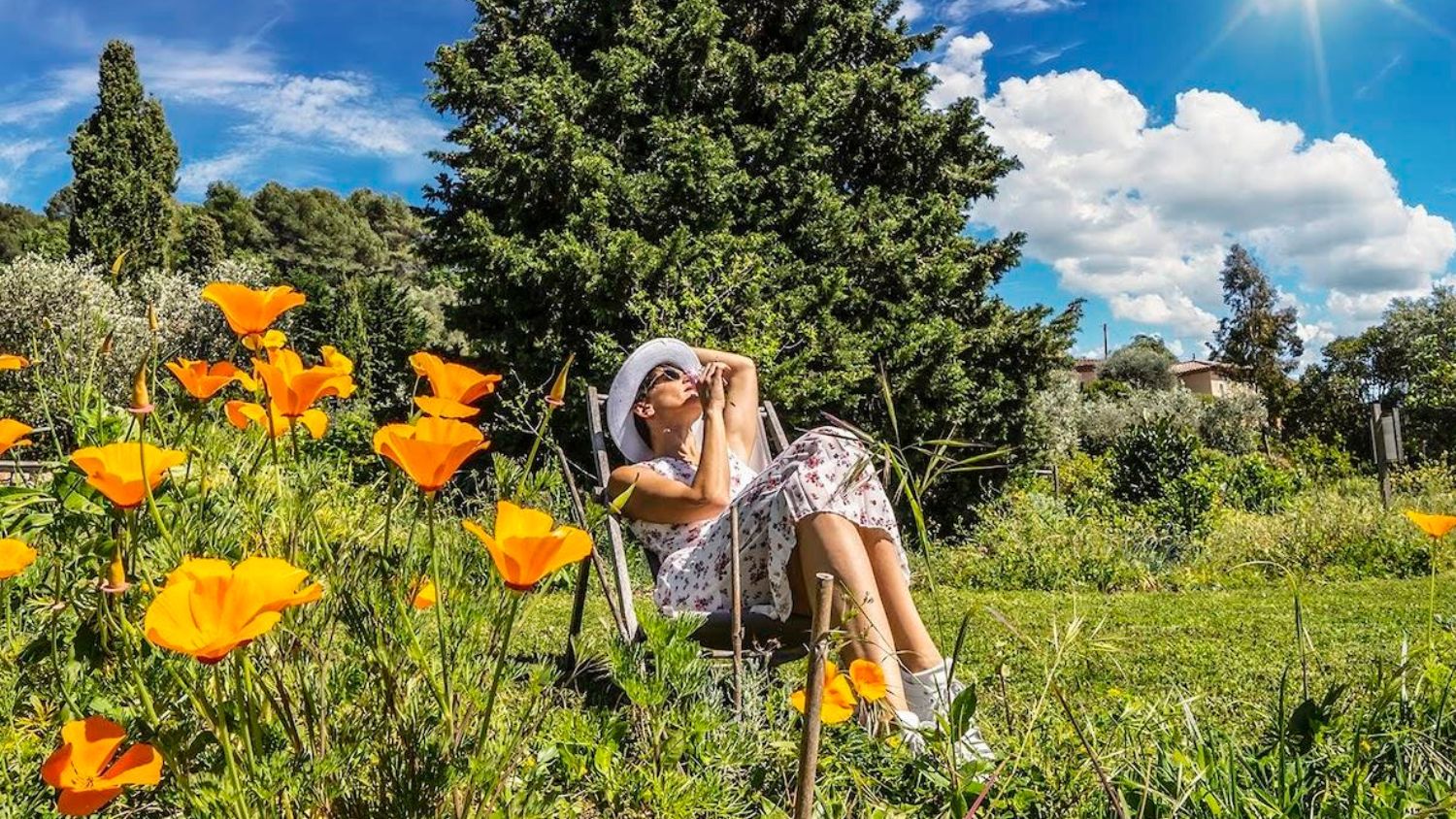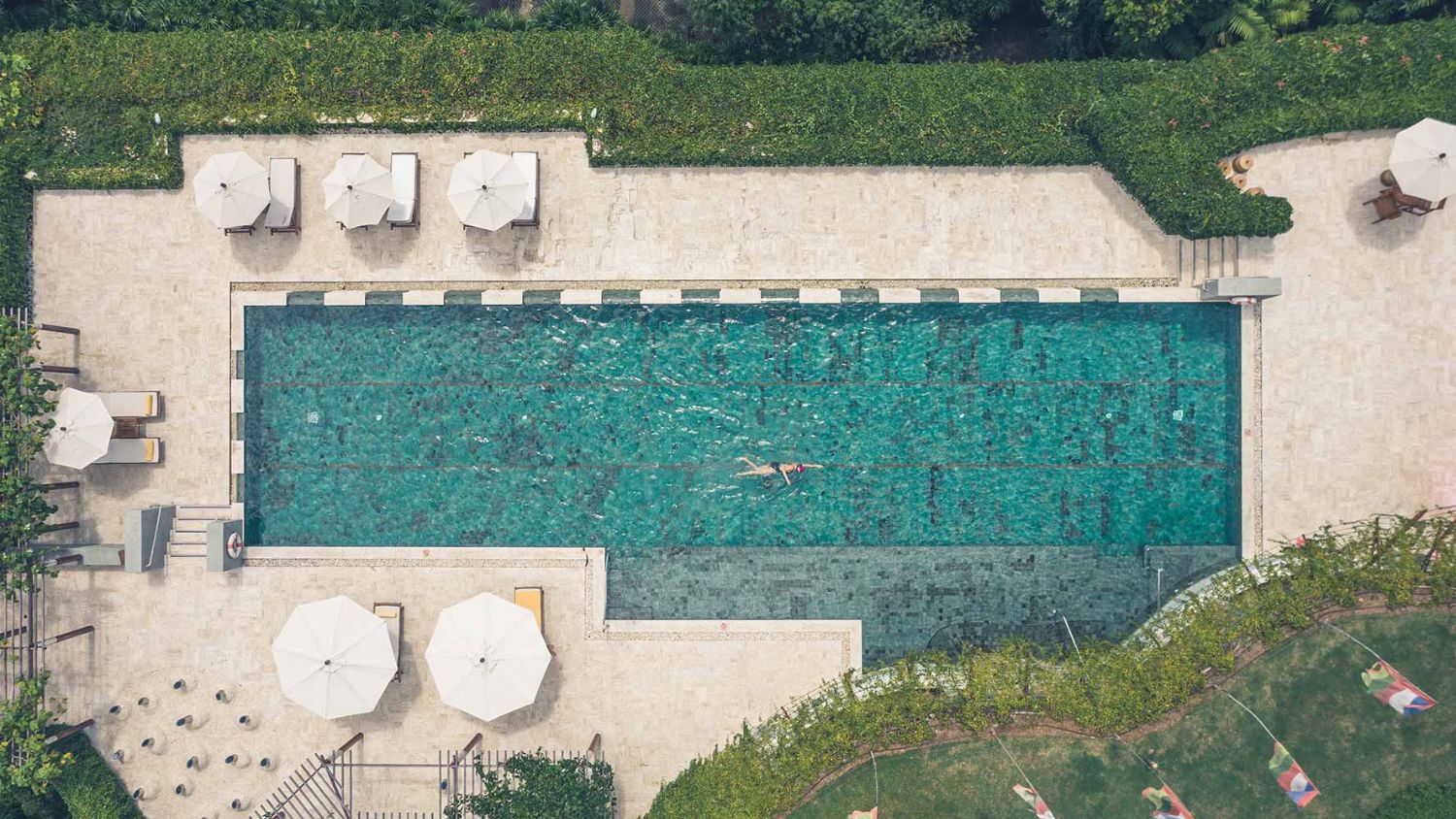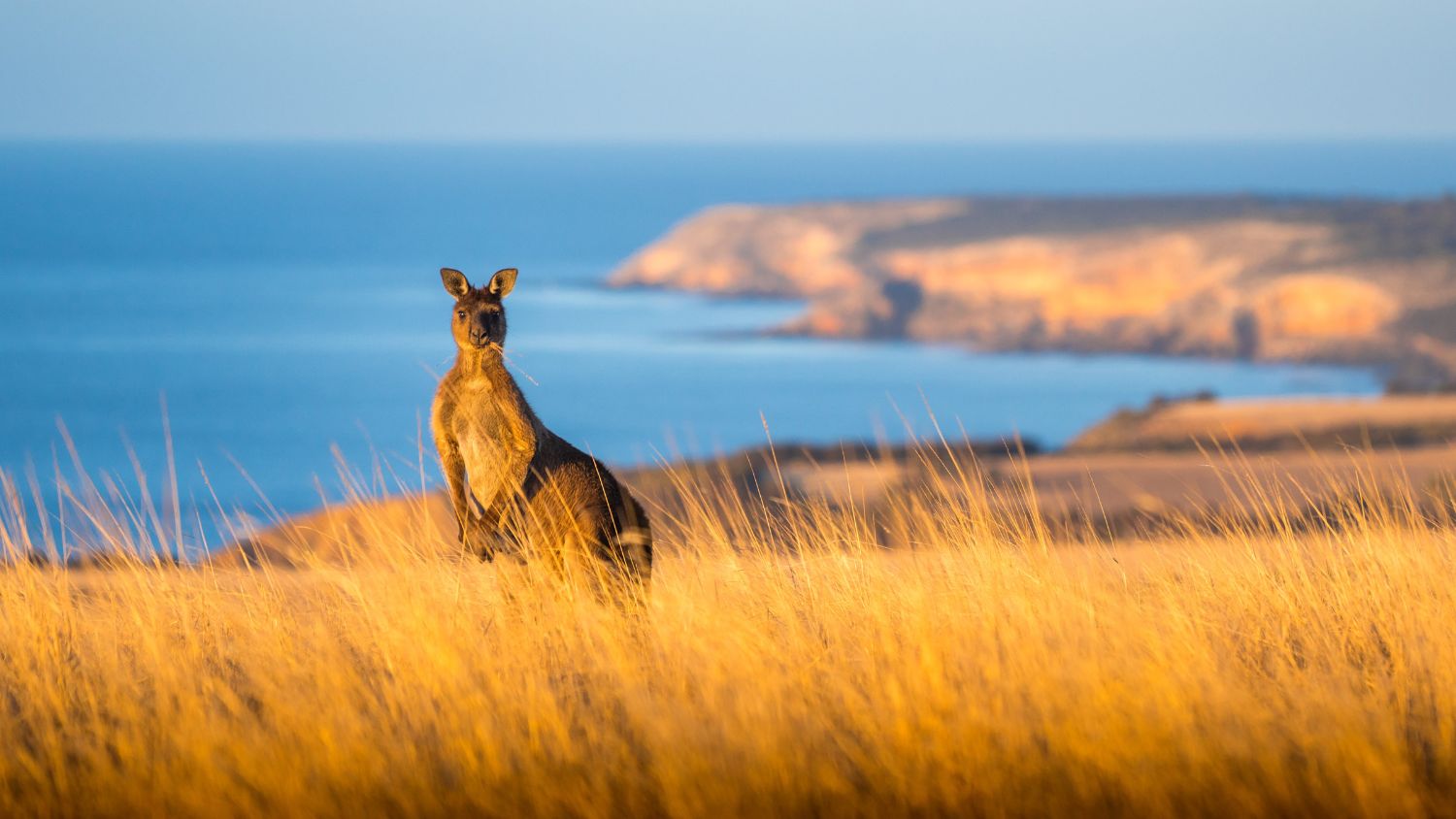Wat Po. The Grand Palace. The Temple of the Reclining Buddha. The Wat Po Thai Traditional Medical and Massage School. Wait. What? Temples and palaces and a Buddha – and massage? Yes.
Among the walls of the stunning Wat Po sits the traditional massage school, opened in 1955 and under the auspices of the Thai Ministry of Education. But this is not the first “school” here. In 1782, after King Rama I founded Bangkok, he took up the task of restoring the temple to its former glory, a royal monastery. During this time, his majesty declared the temple Thailand’s first open university, and a place where Thai Traditional Medicine techniques and the arts could flourish. And they did. The treatments, sometimes known as TTM, are now practiced by therapists the world over. And, although TTM basic principles of traditional medicine and wellness are hundreds of years in the making, it is these same principles that are the inspiration to many spa treatments we experience today, and the precursor to why Thailand has gained a reputation as a luxury spa destination.
But here, surrounded by the spectacular beauty that is Wat Po, there’s an essence to having the treatment that is almost indescribable. Upon entering the temple grounds, there’s a change. The sunlight bounces and reflects off the glimmering stupas, whitewashed buildings seem even whiter, painted murals that story-tell the travels of the Buddha that line some of the interior walls are more vibrant. The ruby and saffron robes of monks coming for daily prayer offer a stark contrast to the stone walkways, their smiles, however, fit right into the daily happiness factor of these people.
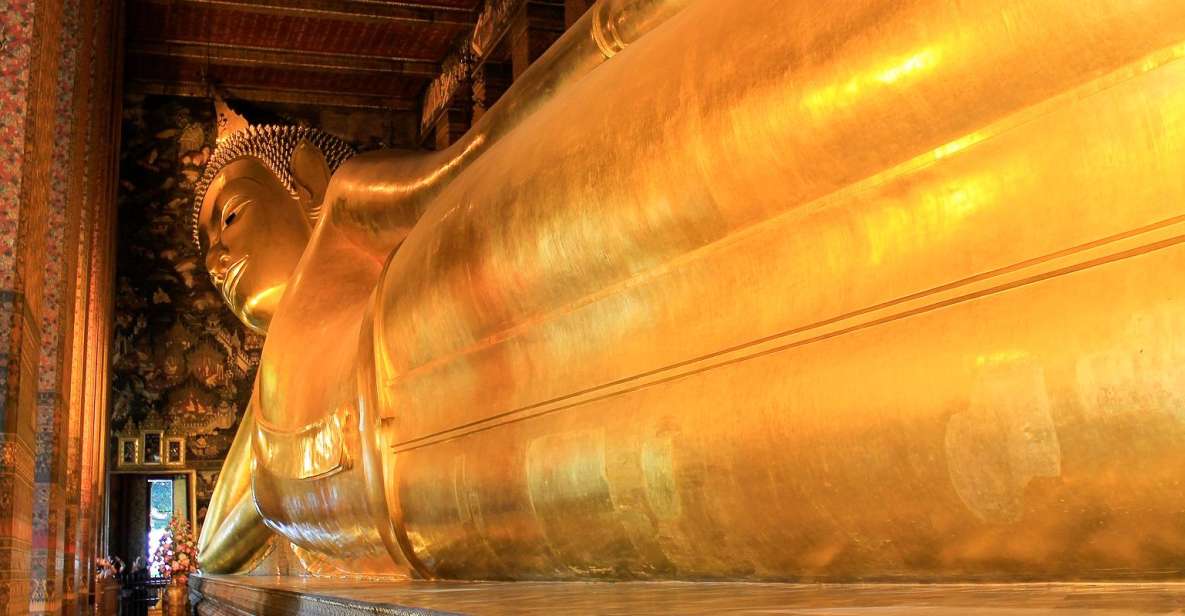
Reclining Buddha statue of Wat Pho
Generous, outgoing, kind, quick to laugh. These are traits that the Thai people carry and show to the world – I like to call it the Thai effect. It is, however, a different story once inside the massage school. A large, spare room, rectangular – not quite as long as the room the Reclining Buddha occupies, but it seems so as you are escorted to your massage bed. En route, it’s a sea of the same: flat, palette-like mattresses lined side by side along the hardwood floor; therapists dressed in white or bright yellow, teak-lined windows letting in the natural light.
Before taking your own reclining pose, you’re asked to change your clothes into robe-like garments. There’s a private change room at the back, and your therapist waits for you while you disrobe. Once back at your assigned spot, you are asked to lie down.
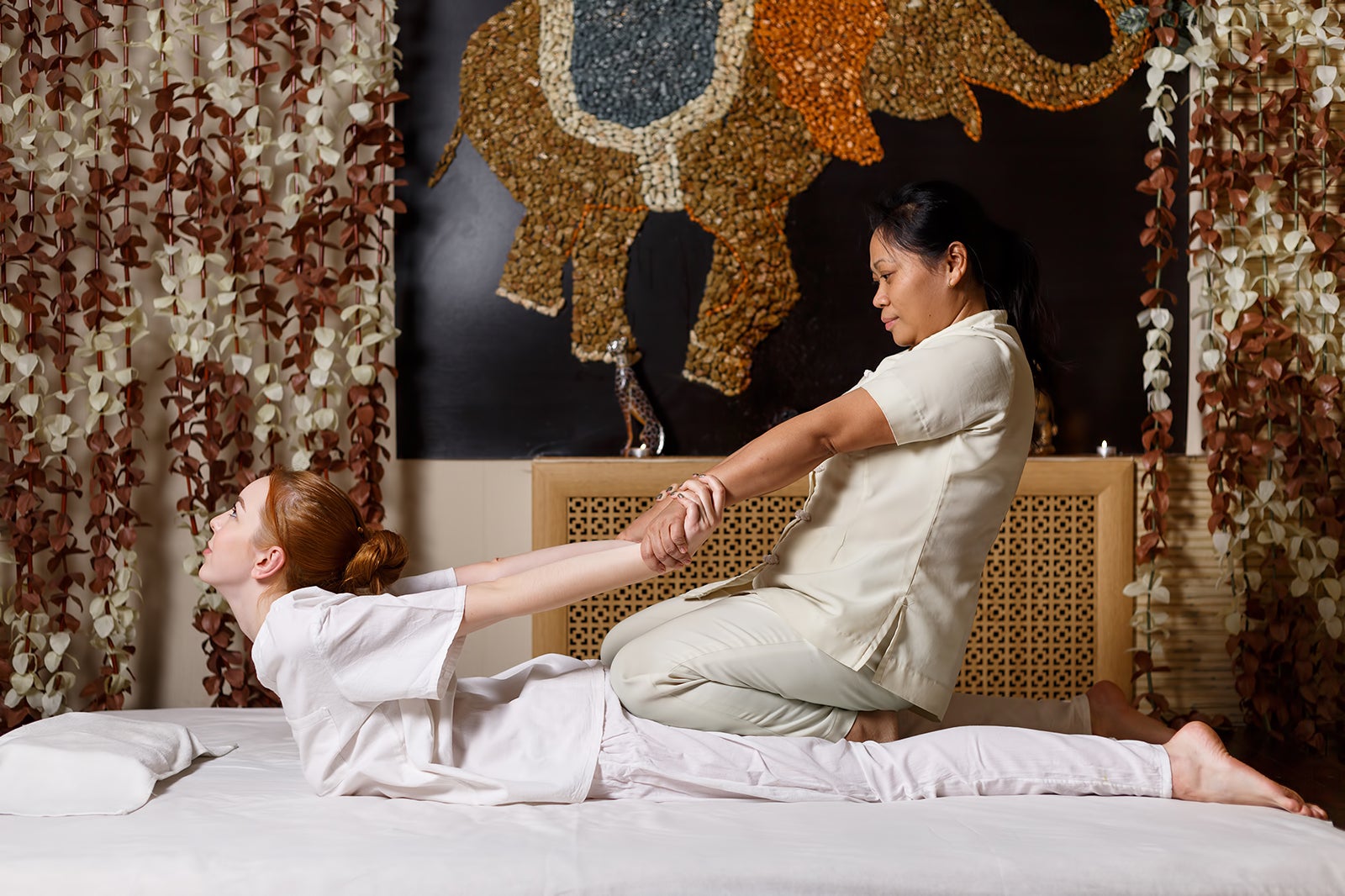
That’s when the real fun begins. A 30-minute treatment runs the wellness gamut, from relieving muscle fatigue to reducing tension to joint mobility, the hands – and elbows, and knees, and feet – work in harmony to get the kinks out. This is by no means a soft touch. TTM is serious business. It’s not that it’s rough either, just targeted and deep. Limbs are pulled, necks are stretched, backs are put back into place. Therapists, dressed in white or bright yellow climb up, around and over your body and around the mattress to use resistance and their own muscles to stretch, pull and work out yours. It may not sound relaxing but, after a half hour of this studied manipulation, you emerge, well, relaxed. Maybe even a bit lighter? It is said to aid lymphatic drainage. Or is it younger? TTM can improve the immune system’s functionality, giving it an anti-aging benefit. And absolutely feeling a sense of calm.
Once outside, the bright sunshine is still doing its dance with the Wat Po’s array of colourful sculptures, stupas and smaller shrines. A stop to give a nod to the Reclining Buddha is necessary, to pay respect to this culture. He is as exquisite as his surroundings, the soles of his feet alone are a marvel of mother of pearl carvings and imagery, taller than most humans; his golden head tilted just so, as if to say, “Don’t worry, be happy.”
Thai effect, indeed.








